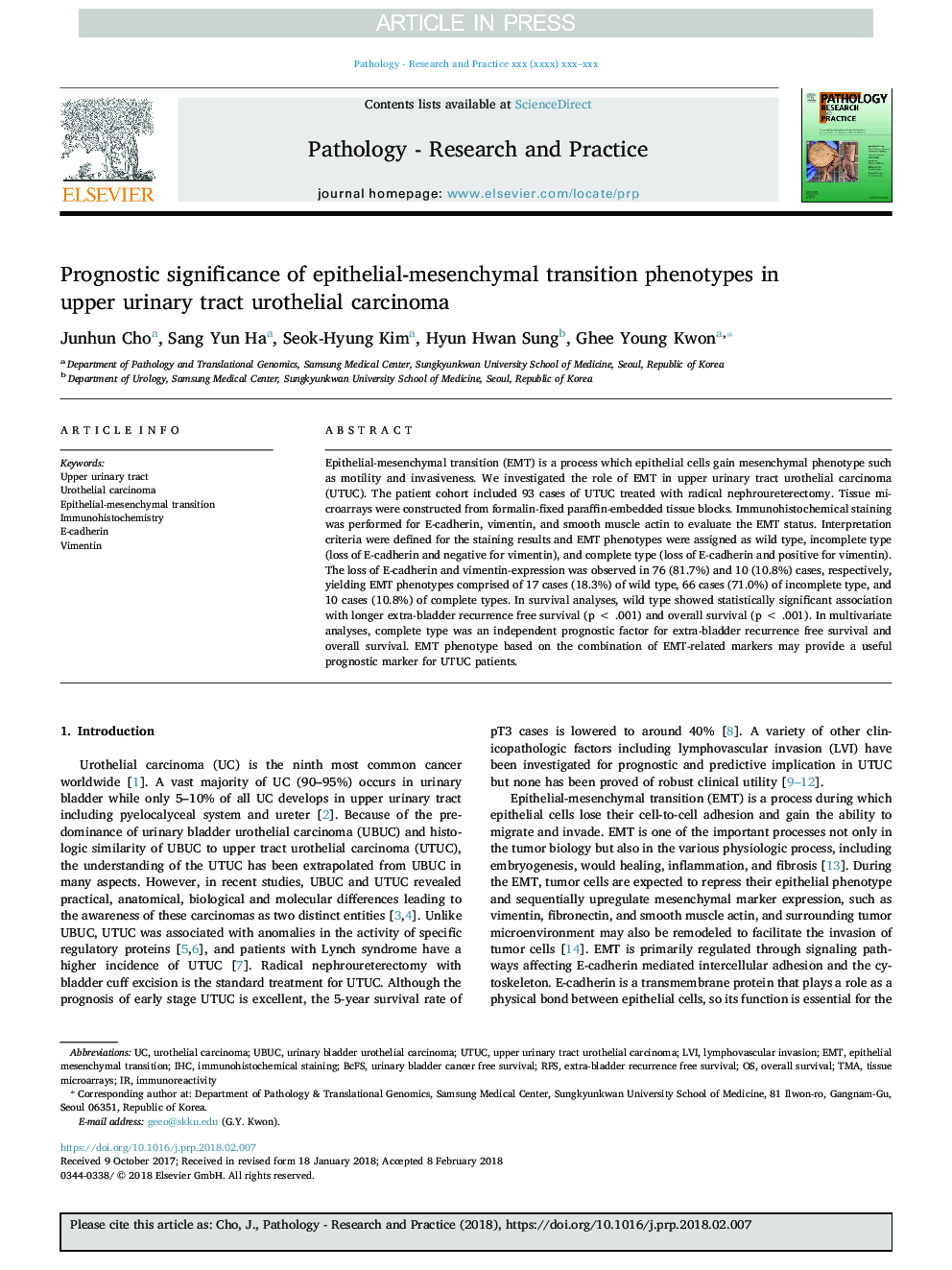| Article ID | Journal | Published Year | Pages | File Type |
|---|---|---|---|---|
| 8458123 | Pathology - Research and Practice | 2018 | 8 Pages |
Abstract
Epithelial-mesenchymal transition (EMT) is a process which epithelial cells gain mesenchymal phenotype such as motility and invasiveness. We investigated the role of EMT in upper urinary tract urothelial carcinoma (UTUC). The patient cohort included 93 cases of UTUC treated with radical nephroureterectomy. Tissue microarrays were constructed from formalin-fixed paraffin-embedded tissue blocks. Immunohistochemical staining was performed for E-cadherin, vimentin, and smooth muscle actin to evaluate the EMT status. Interpretation criteria were defined for the staining results and EMT phenotypes were assigned as wild type, incomplete type (loss of E-cadherin and negative for vimentin), and complete type (loss of E-cadherin and positive for vimentin). The loss of E-cadherin and vimentin-expression was observed in 76 (81.7%) and 10 (10.8%) cases, respectively, yielding EMT phenotypes comprised of 17 cases (18.3%) of wild type, 66 cases (71.0%) of incomplete type, and 10 cases (10.8%) of complete types. In survival analyses, wild type showed statistically significant association with longer extra-bladder recurrence free survival (pâ¯<â¯.001) and overall survival (pâ¯<â¯.001). In multivariate analyses, complete type was an independent prognostic factor for extra-bladder recurrence free survival and overall survival. EMT phenotype based on the combination of EMT-related markers may provide a useful prognostic marker for UTUC patients.
Keywords
RFSTMAVimentinUTUCE-cadherinLVIepithelial mesenchymal transitionImmunoreactivityImmunohistochemistryIHCoverall survivalEMTLymphovascular invasionUpper urinary tractImmunohistochemical stainingurothelial carcinomatissue microarraysUpper urinary tract urothelial carcinomaEpithelial-mesenchymal transition
Related Topics
Life Sciences
Biochemistry, Genetics and Molecular Biology
Cancer Research
Authors
Junhun Cho, Sang Yun Ha, Seok-Hyung Kim, Hyun Hwan Sung, Ghee Young Kwon,
